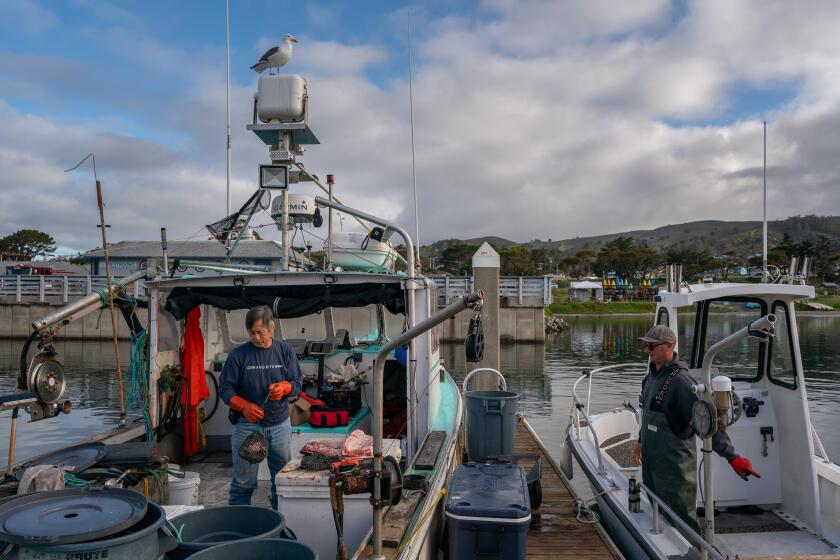Fight to keep Asian carp out of Great Lakes reaches Supreme Court
The fight to keep invasive Asian carp out of the Great Lakes reached the U.S. Supreme Court on Monday, as Michigan’s attorney general filed a lawsuit seeking closure of two shipping locks near Chicago.
Claiming Illinois officials have been lax, Michigan Atty. Gen. Mike Cox asked justices for immediate action to seal off the most direct route for fish entering Lake Michigan, in hopes of protecting the region’s $7-billion fishing industry.
“We don’t want to have to look back years later . . . and say, ‘What was the matter with us? We should have done something,’ ” Cox said. Closing the locks, he said, was “the easiest, the most reliable and the most effective” short-term step officials could take.
Illinois Gov. Pat Quinn declined to say whether he favored closing the locks, but added: “We have to protect the ecology of the Great Lakes; we also have many, many jobs that depend on shipping, so there has to be a proper balance.
“There are ways of preventing the carp from getting into the Great Lakes without strangling our economy.”
The U.S. Army Corps of Engineers, which operates the locks and is a codefendant in the lawsuit, declined to comment.
In addition to closing the locks, the lawsuit seeks creation of barriers to prevent carp from escaping the Des Plaines River or neighboring waterways during flooding. Cox also called for a study of Chicago’s water system to understand the size and scope of the Asian carp population.
The lawsuit comes during a period of heightened anxiety over recent DNA research that hinted the voracious fish may have bypassed an underwater electric barrier system -- and could now be within six miles of Lake Michigan. In August, Quinn signed into law a $3-million program giving universities and researchers authority to fish as many varieties of Asian carp as they could find. Last week, Illinois was awarded $13 million in federal funds to deal with the carp problem.
In filing the lawsuit, Michigan was asking that the high court reopen a 100-year-old case sparked by Chicago’s reversing the flow of the Chicago River to send its sewage and human waste away from Lake Michigan and toward the Mississippi River. A number of states around the Great Lakes complained that Chicago’s manipulation of the waterways was harming the lakes. The courts responded by limiting the amount of water Chicago could divert each day.
Hundreds of millions of dollars in commercial barge traffic pass through the area each year, with much of it proceeding to harbors in Lake Michigan, said the American Waterways Operators, a trade group for the barge industry. Thousands of recreational boaters also use the locks.
The Alliance for the Great Lakes, which recently studied permanently closing Chicago’s shipping canals over fear of invasive species, said there was too much at risk to dismiss closing locks entirely.
“That canal is becoming a liability because it’s putting the future of the Great Lakes at risk,” said Joel Brammeier, chief executive officer of the alliance. “Right now, it’s every tool in the toolbox, whatever it takes to keep the carp from getting into the Great Lakes.”
More to Read
Start your day right
Sign up for Essential California for news, features and recommendations from the L.A. Times and beyond in your inbox six days a week.
You may occasionally receive promotional content from the Los Angeles Times.






